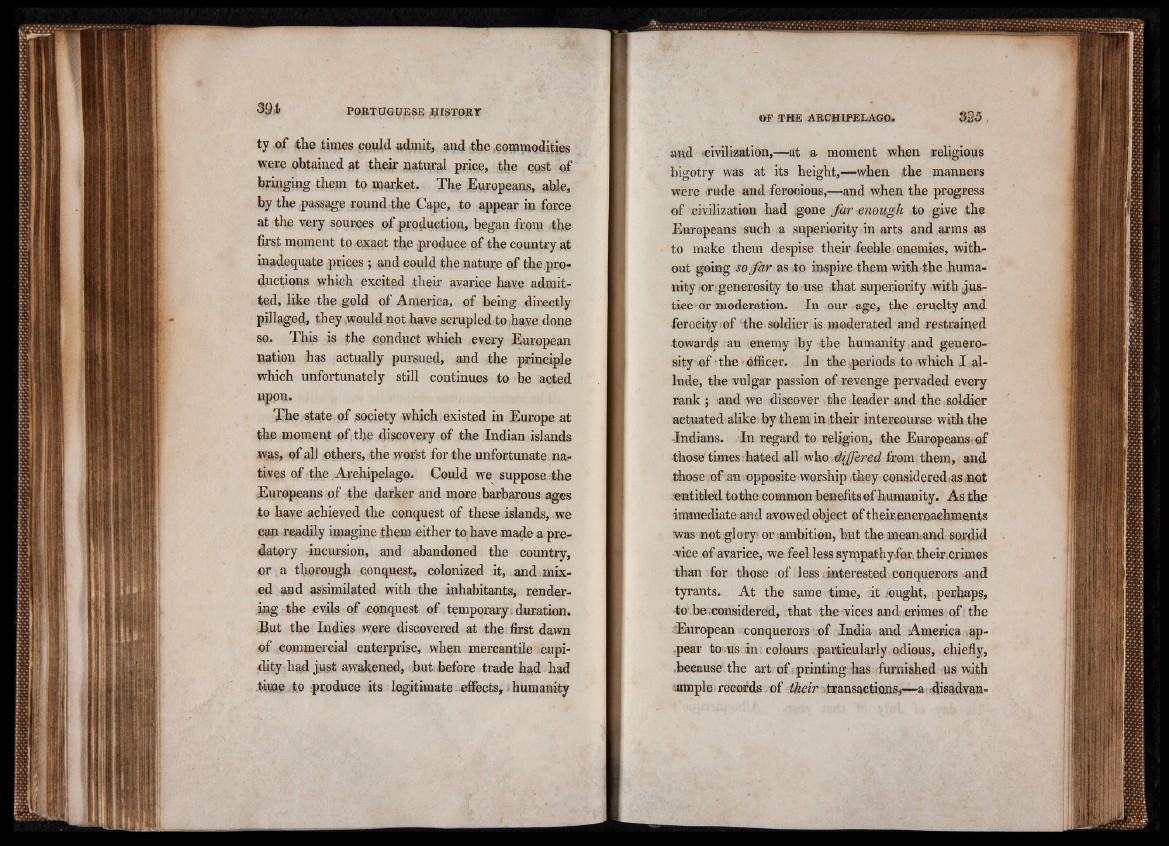
ty of the times could admit, and the commodities
were obtained at their natural price, the cost of
bringing them to market. The Europeans, able,
by the passage round the Cape, to appear in force
at the very sources of production, began from the
first moment to exact the produce of the country at
inadequate prices; and could the nature of the productions
which excited their avarice have admitted,
like the gold of America, of being directly
pillaged, they would not have scrupled to haive done
so. This is the conduct which every European
nation has actually pursued, and the principle
which unfortunately still continues to he acted
upon.
The state of society which existed in Europe at
the moment of the discovery of the Indian islands
was, of all others, the worst for the unfortunate natives
of the Archipelago. Could we suppose the
Europeans of the darker and more barbarous ages
to have achieved the conquest of these islands, we
can readily imagine them either to have made a predatory
incursion, and abandoned the country,
or a thorough conquest, colonized it, and, mixed
and assimilated with the inhabitants, rendering
the evils of conquest of temporary, duration.
But the Indies were discovered at the first dawn
of commercial enterprise, when mercantile cupidity
had just awakened, but before trade had had
time to produce its legitimate effects, humanity
and (civilization,—at a moment when -religious
bigotry was at its height,—when the manners
were «rude and ferocious,—-and when the progress
of civilization had gone Jur enough to give the
Europeans such a superiority in arts and arms as
to make them despise their feeble enemies, without
going so Jar as to inspire them with the humanity
or ¡generosity to use that superiority with justice
or moderation. In our age, the cruelty and
ferocity .of the soldier is moderated and restrained
towards;an enemy by the humanity and generosity
of the f officer. In the periods to which I allude,
the vulgar passion of revenge pervaded every
rank ; and we discover the leader and the soldier
actuated alikei by them in their intercourse with the
Indians. In regard to religion, the Europeans of
those times hated all who differed from them, and
those of an opposite worship they considered (as not
entitled to the common benefits of humanity . As the
immediate and avowed object of their encroachments
was not glory« oriambition, but the mean-and. sordid
-vice of avarice, we feel less sympathyfor their crimes
than for those of. less interested conquerors and
tyrants. At the same time, it ought, perhaps,
4o .be;;considered, that the «vices and; crimes of; the
European conquerors .of India and America appear
to.us .in. colours .particularly odious, chiefly,
-because the art of printing has furnished us with
sample; records of their transactions*—-a -disadvan